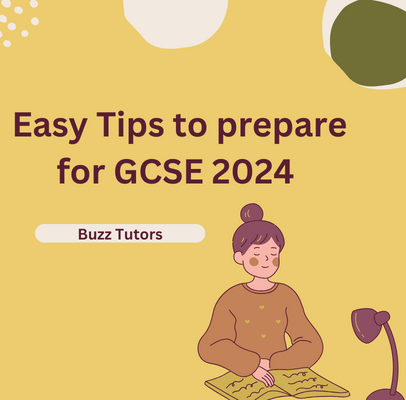All Blogs

6 Reasons Why You Should Hire A Tutor For Your Child
Children often encounter challenges in school, and parents aim to enhance their enthusiasm for learning, boost educational self-esteem, and promote academic success. Tutors play a crucial role in achieving these objectives by providing personalised support. They help kids overcome difficulties, making learning enjoyable and building confidence. Parents seek tutors to ensure their children not only navigate academic hurdles but also develop a positive attitude towards education, setting the stage for a successful learning journey. Here Are A Few Ways Tutoring Can Really Help: 1. Tutors Go At The Speed That Suits Each Child. Having a private tutor comes with a big advantage for kids – they get to learn at their own comfortable pace. In regular school, sometimes teachers cover topics quickly, and students might feel hesitant to ask for a review. A private tutor changes that by offering one-on-one learning. This means children can go through subjects at a speed that suits them best, ensuring a thorough understanding of the material. The individualised attention also creates a comfortable space for asking questions without any shyness or discomfort. It's a chance for kids to dive deeper into topics they find challenging, reinforcing their learning and boosting confidence. With a private tutor, the learning experience becomes tailored to the child's needs, making education more effective and enjoyable. 2. Strengthening Study Habits Lots of students might say they "hate" maths or find Science "impossible," but it's often not the subjects themselves that are the problem. They just haven't figured out how to study well. A good tutor does more than just help with homework. It's not really helpful if the tutor only gets a student through the latest maths problem or essay. What's more important is teaching them how to handle academic challenges on their own. Tutors can guide students in developing better study habits and learning how to learn. A tutor can show a student how to take good notes in class or create a study guide for a test. They can work together to organise folders and backpacks, making it easy to find and review materials. A student can even learn how to read a long history chapter and remember the important stuff. These study habits aren't just useful in school; they stick with the student on the college campus and beyond. 3. Improve Time Management Teens today have a lot on their plates – dealing with tough Advanced Placement classes, getting ready for SAT or ACT exams, and keeping up with busy extracurriculars. All this can make them feel stressed and anxious, leaving little time for friends, family, or even a good night's sleep. That's where a tutor can step in to help your teen manage their time better and more mindfully. A tutor won't just assist with homework and test prep; they can guide your teen in forming better study habits. Together, they can create a system for recording and organising tasks, like making to-do lists. The tutor can also encourage your teen to think about both short-term and long-term goals, making sure they spend their time in line with their values and aspirations. It's not just about getting through the day; it's about setting up habits that will benefit them in the long run. 4. Reducing Student Stress When students get the hang of managing their time and studying well, it creates a positive cycle. What once felt like a tough schedule becomes doable. Now, there's more room for sleep, hanging out with friends, and spending time with family. With better sleep and less stress, students are more ready to learn. This boosts their confidence and makes studying easier and more effective. It's like a chain reaction - when they feel good about their schedule, everything else falls into place, and learning becomes a smoother and more enjoyable process. 5. Individualised Focus Being in a big classroom with lots of other students isn't always the best way to learn. Many students do better and actually enjoy studying more when they get personal attention from a tutor. A good tutor takes the time to know what a student likes, where they're strong, where they might need help, what keeps them going, and what might make them feel down. This understanding of each student is super important for learning that really works. Find out all the cool things our tutors do to make learning fun by connecting with students' interests. It's like making learning your own adventure! 6. Boost Mental Maths Personalised tutoring is like a detective for finding gaps in what a student knows. One common challenge we spot is with basic maths skills. The National Council of Teachers of Math says being super comfy with basic maths, understanding number patterns, and tackling problems without a calculator are crucial. These skills can either make high school and college maths a breeze or a bit of a struggle. At Buzz Tutors, we focus on making maths skills super strong, no matter what maths subject a student is dealing with. We've noticed that maths can be a tricky topic for students, slowing them down not just in algebra or calculus, but also in subjects like physics, chemistry, or biology. Being awesome at solving maths problems is a life skill, no matter what path a student takes. Whether you're baking a cake, dealing with a mortgage, or picking a credit card, personalised tutoring can really boost those maths skills. It's like having a secret weapon for everyday life! When you get a tutor for your child from Buzz Tutors, you're bringing the classroom home—whether it's through Skype or in-person. They can help with any school stuff your child struggles with, be it maths or reading. Buzz Tutors makes a special plan just for your child. They use cool methods that match how your child learns best, giving them personal support. This way, even when dealing with tough subjects, your child won't feel alone or super stressed. So, when you're ready to make learning more awesome for your child, Choose Buzz Tutors Best Tutor in London.
Read More...
Easy Tips To Prepare For GCSE 2024
GCSE exams are approaching, and it's the perfect time to start getting ready for revision. Starting early can really help boost your performance and grades. It gives you more time to study, allows for a balanced approach to revision, and lets you set clear goals and plan study sessions ahead. Here's a straightforward guide to GCSE revision for you and your parents. Follow these six steps to success! From figuring out when to start revising to mastering effective study techniques, we've got it all covered. When is the Right Time to Begin Studying For GCSEs? It's best to begin studying for GCSEs around six months before the actual exam. Since most exams are in May and June, starting your revision in January is a good goal. However, everyone has different schedules, so parents should work with their child to find the right time for them. Keep an eye out for messages from your child's school as exams approach. Starting early is key. Underestimating the subjects you need to cover can lead to stress later on. While a bit of last-minute revision is okay, it's better to begin early to avoid feeling rushed and anxious. When Do the GCSE Exams Begin in 2024? In 2024, the first GCSE exam starts on May 9th, and the last one is on June 19th. When will the GCSE Results Be Announced? Normally, GCSE results come out in the third week of August. In 2024, Results Day is on August 22nd. A Simple Guide to GCSE Revision - Follow These Steps! 1. Create a Study Schedule: Start by creating a study schedule that works for you. Break down your subjects into manageable chunks and allocate specific time slots for each. This will help you stay organized and cover all the necessary material without feeling overwhelmed. 2. Use Active Learning Techniques: Instead of just passively reading your textbooks, engage in active learning. Take notes, make flashcards, or create summary sheets. By actively engaging with the material, you'll improve your understanding and retention. 3. Practice Past Papers: Familiarize yourself with the exam format by practicing past papers. This will not only help you get used to the types of questions you'll encounter but also identify any areas where you may need to focus your revision. 4. Seek Help When Needed: Don't be afraid to ask for help if you're struggling with certain topics. Whether it's from your teachers, classmates, or online resources, getting clarification on difficult concepts early on can prevent misunderstandings later. 5. Take Care of Yourself: Remember to take care of your physical and mental well-being during your exam preparation. Get plenty of sleep, eat healthily, and take breaks when needed. A refreshed mind and body will help you study more effectively. 6. Stay Positive and Stay Motivated: Finally, maintain a positive attitude and stay motivated throughout your revision period. Remind yourself of your goals and the reasons why you're working hard to succeed in your GCSEs. Visualize your success and keep pushing forward. Excelling in your GCSE exams is a breeze with these six easy tips. Stay organized, engage in active learning, practice past papers, and remember to seek help when needed. And here's the special touch - Buzz Tutors, your trusted GCSE tutor in London, is here to support you every step of the way. Don't forget to take care of yourself, stay positive, and keep that motivation high. Wishing you the best of luck on your exams!"
Read More...